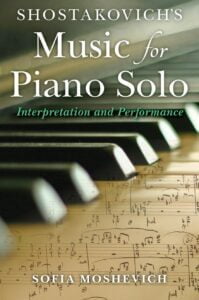Come join us now, and enjoy playing your beloved music and browse through great scores of every level and styles!
Can’t find the songbook you’re looking for? Please, email us at: sheetmusiclibrarypdf@gmail.com We’d like to help you!
Watch with sheet music
Come join us now, and enjoy playing your beloved music and browse through great scores of every level and styles!
Can’t find the songbook you’re looking for? Please, email us at: sheetmusiclibrarypdf@gmail.com We’d like to help you!
Nobuyuki Tsujii – Elegy for the victims of the Tsunami of March 11, 2011 with free sheet music
Nobuyuki Tsujii (辻井 伸行, Tsujii Nobuyuki) (also known as Nobu Tsujii) is a Japanese pianist and composer. He was born blind due to microphthalmia, and his exceptional musical talent has propelled him to become a world renowned artist.

Tsujii performs extensively, with numerous conductors and orchestras, and has received critical acclaims as well as notices for his unique techniques for learning music and performing with an orchestra while being unable to see.
Tsujii learns new musical works strictly by ear. A 2009 Time article explains: “Certainly, being blind hasn’t made it easy.
Tsujii can use Braille music scores to learn new pieces, but this kind of translation is usually done by volunteers. Because demand is so low, the variety of scores available does not meet the needs of a professional performer, so Tsujii has devised his own method. A team of pianists records scores along with specific codes and instructions written by composers, which Tsujii listens to and practices until he learns and perfects each piece.”.
Tsujii said in a 2011 interview, “I learn pieces by listening, but it doesn’t mean I’m copying CDs or another person’s interpretation. I ask my assistants to make a special cassette tape for me. They split the piece into small sections, such as several bars, and record it (one hand at a time). I call these tapes ‘music sheets for ears.’ It takes me a few days to complete a short piece, but it takes one month to complete a big sonata or concerto.”
Tsujii has performed successfully with numerous orchestras under the baton of many conductors, both in Japan and abroad.
In 2017, a reporter from the Australian Broadcasting Corporation, Monique Schafter, asked Tsujii “How do you stay in time when you can’t see the conductor?” The pianist replied: ” By listening to the conductor’s breath and also sensing what’s happening around me.” Conductor Bramwell Tovey commented: “He must have very acute hearing, I’m sure.”
Piano concertos that Tsujii has performed include: Piano Concerto No. 1 (Beethoven), Piano Concerto No. 2 (Beethoven), Piano Concerto No. 3 (Beethoven), Piano Concerto No. 5 (Beethoven), Piano Concerto No. 1 (Tchaikovsky), Piano Concerto No. 3 (Prokofiev), Piano Concerto (Grieg), Piano Concerto No. 2 (Rachmaninoff), Piano Concerto No. 3 (Rachmaninoff), Piano Concerto No. 20 (Mozart), Piano Concerto No. 21 (Mozart), Piano Concerto No. 26 (Mozart), Piano Concerto No. 27 (Mozart), Piano Concerto No. 1 (Chopin), Piano Concerto No. 2 (Chopin), Piano Concerto (Ravel), Piano Concerto No. 1 (Liszt), and Piano Concerto No. 1 (Shostakovich). He has also performed Gershwin’s Rhapsody in Blue and Rachmaninov’s Rhapsody on a Theme of Paga
In addition to being a pianist, Tsujii is a composer.
At age 12, he performed his own composition “Street Corner of Vienna.”
In 2010-2011, he composed the theme music for a Japanese film ‘神様のカルテ (In His Chart)’, for which he was named the 2011 Film Music Artist by the Japan Film Critics Award. That same year, he also composed the theme music for a Japanese TV drama ‘それでも、生きてゆく (Still We Live On)’.
In June 2011, Japanese figure skating champion Midori Ito performed in a world event (Master Elite Oberstdorf 2011) to the music of “Whisper of the River,” composed by Tsujii when he was in high school to express his love for his father after the two took a walk on the Kanda River in Tokyo.
Tsujii was the music director and composed the theme music for the Japanese film はやぶさ 遥かなる帰還 The Return of the Hayabusa released in February 2012. In 2014, he composed the ending theme for the film ‘マエストロ(Maestro!)’.
In 2016, Tsujii created and performed the background music for a series of three animation of Chōjū-jinbutsu-giga scrolls produced by Studio Ghibli for Marubeni Corporation.
Tsujii’s 2011 performance of his own composition, “Elegy for the Victims of the Tsunami of March 11, 2011 in Japan”, is widely viewed on the Internet.
Tsujii has an extensive discography. His recordings are now available worldwide.
Please, subscribe to our Library.
If you are already a subscriber, please, check our NEW SCORES’ page every month for new sheet music. THANK YOU!

Browse in the Library:
Or browse in the categories menus & download the Library Catalog PDF:
